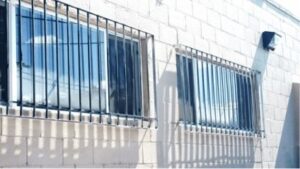Here’s the translation to American English:
The extreme heat of summer poses a significant challenge to the health of muscles and joints, especially for those who are physically active or who are resuming their exercise routines at this time of year. This is the main conclusion of a review of studies conducted by Longevitas, which highlights how factors such as dehydration and increased physical activity can exacerbate this harmful effect.
Dr. Ángel Durántez, an expert in preventive medicine and a member of the scientific committee of Longevitas, warns that high temperatures elevate oxidative stress in the body, which can induce micro-inflammations. This compromises muscle and joint recovery unless appropriate precautions are taken.
Proper hydration is crucial for preserving the integrity of the joints and adjacent tissues. Dehydration not only causes increased stiffness but also reduces flexibility, thereby increasing the risk of injuries during sports activities. Recent studies indicate that in professional athletes, dehydration may be related to pain in the muscles and joints, which in turn delays recovery and raises the likelihood of new injuries.
Additionally, repeated stress on the joints, particularly for those training on hard surfaces, combined with excessive sweating and inadequate attention to nutrition, can lead to low-grade chronic inflammation. Aitor Ocio, a former soccer player, emphasizes the need to take care of the body during this season, reminding that every workout and every injury is recorded in muscle memory. “It’s easy to let your guard down in the summer, but if you don’t recover properly, you’ll feel it in the fall,” he warns.
To combat inflammation, supplementation with resolvins, a type of lipid agent derived from omega-3, has proven effective. These molecules help expedite muscle repair after exercise-related injuries, promoting active resolution of inflammation. Ocio suggests that instead of suppressing inflammation with conventional anti-inflammatories, it is preferable to facilitate its natural resolution to prevent it from becoming chronic.
Furthermore, Ocio highlights the importance of maintaining an adequate base of micronutrients, especially during the summer when sun exposure doesn’t always guarantee optimal levels of vitamin D. This vitamin is crucial for modulating inflammatory responses and safeguarding bone health. Vitamin K2 also plays an important role in ensuring that calcium is properly directed to bone tissue, preventing its accumulation in arteries and joints. On the other hand, bisglycinate magnesium, known for its good absorption and digestive tolerance, supports muscle function and helps prevent cramps.
In summary, to maintain joint and muscle health during the summer heat, it is essential to pay attention to hydration, nutrition, and recovery, tailoring the exercise approach to the body’s specific needs.
via: MiMub in Spanish











